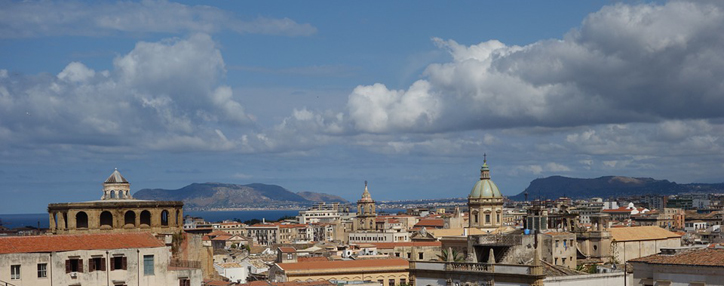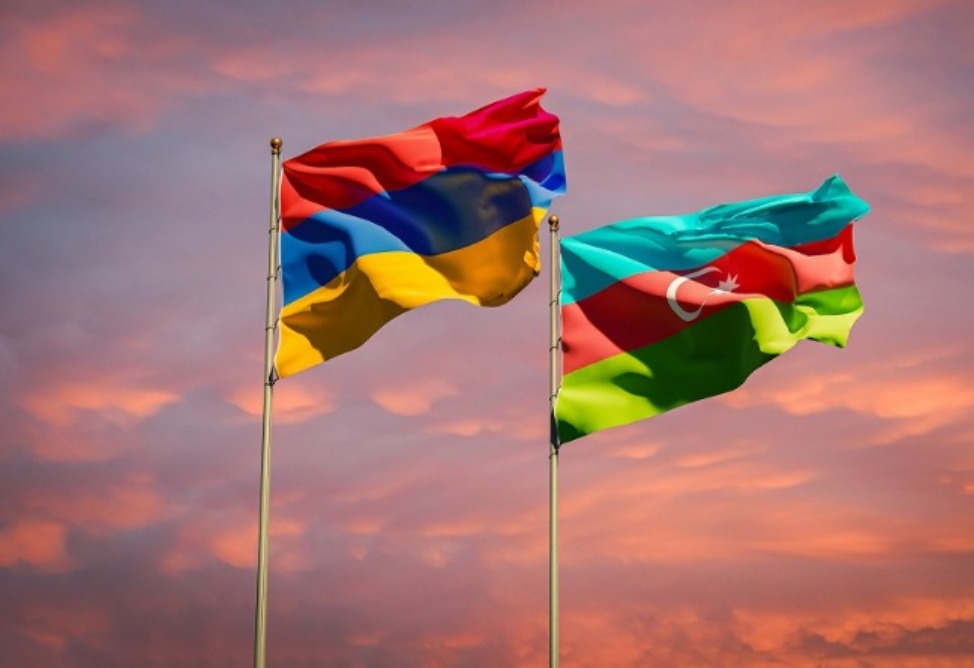City council of Italy’s Palermo recognizes Artsakh independence
29.10.2020,
09:59
The city council of Italy’s Palermo unanimously recognized the independence of Artsakh, the Armenian embassy in Italy reports.

YEREVAN, October 29. /ARKA/. The city council of Italy’s Palermo unanimously recognized the independence of Artsakh, the Armenian embassy in Italy reports.
“Thank you Palermo for standing next to values,” the diplomatic mission wrote on its Facebook page.
The independence of Artsakh was recognized yesterday also by another Italian city - Cherkyara di Calabria.
War in Artsakh
Since the morning of September 27, Azerbaijani troops have been carrying out military aggression along the entire length of the contact line in Artsakh, conducting artillery and rocket attacks, including against civilians and civilian infrastructures. Strikes were also carried out at civilian and military targets on the territory of Armenia.
The Azerbaijani side is supported by the Turkish Armed Forces and the foreign terrorist mercenaries recruited by it. The Turkish-Azerbaijani aggression encounters a decisive rebuff from the Armenian Armed Forces along the entire frontline.
According to the official reports on the Armenian side, Azerbaijan’s 223UAVs, 16 helicopters, 25 aircraft, 618 armored vehicles, 6 TOS units have been destroyed since the beginning of Azerbaijan’s aggression. The enemy’s death toll is 6,749. More than 960 Armenian servicemen have been killed and several hundred people were wounded. As a result of the war crimes committed by Azerbaijan, 38 civilians were killed and 120 wounded in Artsakh.
Since the beginning of the war, there have been three attempts to establish a humanitarian ceasefire. All three agreements, which were reached on October 10 through the mediation of the Russian Federation, on
October 17 through France and on October 25 through the mediation of the United States, were violated by Azerbaijan.
About Karabakh Conflict
Karabakh conflict broke out in 1988 when Karabakh, mainly populated by Armenians, declared its independence from Azerbaijan.
On December 10, 1991, a few days after the collapse of the Soviet Union, a referendum took place in Nagorno-Karabakh, and the majority of the population (99.89%) voted for secession from Azerbaijan.
Afterwards, large-scale military operations began. As a result, Azerbaijan lost control over Nagorno-Karabakh and the seven regions adjacent to it. Some 30,000 people were killed in this war and about one million people fled their homes.
On May 12, 1994, the Bishkek cease-fire agreement put an end to the military operations. Since 1992, talks brokered by OSCE Minsk Group are being held over peaceful settlement of the conflict. The group is co-chaired by USA, Russia and France. -0---
“Thank you Palermo for standing next to values,” the diplomatic mission wrote on its Facebook page.
The independence of Artsakh was recognized yesterday also by another Italian city - Cherkyara di Calabria.
War in Artsakh
Since the morning of September 27, Azerbaijani troops have been carrying out military aggression along the entire length of the contact line in Artsakh, conducting artillery and rocket attacks, including against civilians and civilian infrastructures. Strikes were also carried out at civilian and military targets on the territory of Armenia.
The Azerbaijani side is supported by the Turkish Armed Forces and the foreign terrorist mercenaries recruited by it. The Turkish-Azerbaijani aggression encounters a decisive rebuff from the Armenian Armed Forces along the entire frontline.
According to the official reports on the Armenian side, Azerbaijan’s 223UAVs, 16 helicopters, 25 aircraft, 618 armored vehicles, 6 TOS units have been destroyed since the beginning of Azerbaijan’s aggression. The enemy’s death toll is 6,749. More than 960 Armenian servicemen have been killed and several hundred people were wounded. As a result of the war crimes committed by Azerbaijan, 38 civilians were killed and 120 wounded in Artsakh.
Since the beginning of the war, there have been three attempts to establish a humanitarian ceasefire. All three agreements, which were reached on October 10 through the mediation of the Russian Federation, on
October 17 through France and on October 25 through the mediation of the United States, were violated by Azerbaijan.
About Karabakh Conflict
Karabakh conflict broke out in 1988 when Karabakh, mainly populated by Armenians, declared its independence from Azerbaijan.
On December 10, 1991, a few days after the collapse of the Soviet Union, a referendum took place in Nagorno-Karabakh, and the majority of the population (99.89%) voted for secession from Azerbaijan.
Afterwards, large-scale military operations began. As a result, Azerbaijan lost control over Nagorno-Karabakh and the seven regions adjacent to it. Some 30,000 people were killed in this war and about one million people fled their homes.
On May 12, 1994, the Bishkek cease-fire agreement put an end to the military operations. Since 1992, talks brokered by OSCE Minsk Group are being held over peaceful settlement of the conflict. The group is co-chaired by USA, Russia and France. -0---



